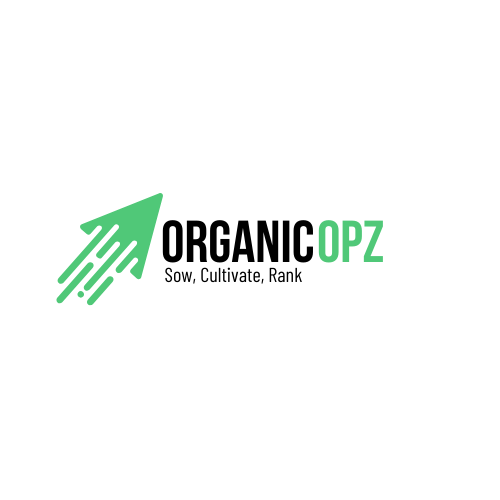How to Write Compelling Meta Descriptions and Titles
 OrganicOpz
OrganicOpzCrafting compelling meta descriptions and titles is crucial for enhancing your website's SEO performance. These elements not only improve your search engine rankings but also attract users to click through to your content. Here's a comprehensive guide on how to write meta descriptions and titles that stand out.
What Are Meta Descriptions and Titles?
Meta descriptions and titles are HTML attributes that provide brief summaries of web pages. They appear in search engine results pages (SERPs) and influence click-through rates (CTR). Effective meta descriptions and titles can significantly boost your site's visibility and user engagement.
Why Meta Descriptions and Titles Matter
Meta descriptions and titles serve as the first impression users get of your content. They determine whether users will click on your link or scroll past it. A well-crafted meta description and title can:
Improve CTR
Enhance SEO
Increase traffic
Boost user engagement
Key Elements of Compelling Meta Descriptions and Titles
1. Focus Keyphrase Inclusion
Ensure your focus keyphrase appears in the title, headings, URL, meta descriptions, and the first sentence of your content. This improves SEO and signals to users that your content is relevant to their search.
2. Keyword Density and Synonyms
Maintain a keyword density of 1-2% to ensure natural readability and avoid keyword stuffing. Use synonyms and related keyphrases to enhance comprehensiveness and improve SEO. This approach makes your content more varied and engaging.
3. Unique and Engaging Meta Descriptions
Write unique meta descriptions for each page, including the focus keyphrase, and keep them around 100-150 characters. This ensures each page is distinct and provides specific information about its content.
4. Readability and Structure
Keep paragraphs under 150 words to maintain readability, especially for mobile users. Use shorter sentences to improve readability and avoid overly complex sentences. Use subheadings (like <h2> and <h3>) to break up text and incorporate keywords, making content easier to scan.
5. Use of Transition Words
Transition words improve the flow of your content. They guide readers through your text, making it easier to follow and understand. Examples include "however," "moreover," and "therefore."
6. Active Voice
Limit the use of passive voice to make sentences more direct and engaging. Active voice creates a sense of urgency and clarity, which resonates better with readers.
7. Flesch Reading Ease Score
Aim for a higher Flesch Reading Ease score to ensure your content is accessible to a broader audience. This means using simple words and sentences to make your content easy to read.
8. Audience-Centric Writing
Write with your audience in mind, addressing their needs and interests. Understand what your audience is looking for and tailor your content to meet those needs.
9. Clear Calls to Action (CTAs)
Include clear CTAs to guide readers on what to do next. This increases engagement and conversions. Examples include "Read more," "Sign up," and "Contact us."
10. Regular Content Updates
Regularly update your content to keep it relevant and improve its performance in search rankings. Fresh content signals to search engines that your site is active and up-to-date.
Example of a Compelling Meta Description and Title
Title: How to Write Compelling Meta Descriptions and Titles for Better SEO
Meta Description: Learn how to write compelling meta descriptions and titles to improve your SEO and increase your website's click-through rates. Follow our expert tips.
Conclusion
Writing compelling meta descriptions and titles is essential for improving your SEO and attracting more users to your site. By following the guidelines outlined above, you can create engaging and effective meta descriptions and titles that stand out in search engine results.
Remember, your meta descriptions and titles are often the first impression users have of your content. Make sure they are engaging, informative, and aligned with your audience's needs. Regularly update your content to keep it relevant and improve its performance in search rankings.
By implementing these strategies, you'll not only enhance your SEO but also provide a better user experience, leading to higher engagement and conversions.
Subscribe to my newsletter
Read articles from OrganicOpz directly inside your inbox. Subscribe to the newsletter, and don't miss out.
Written by

OrganicOpz
OrganicOpz
Welcome to OrganicOpz, your partner in cultivating organic growth and optimizing your online presence. We specialize in personalized SEO strategies designed to help you rank higher, attract more organic traffic, and achieve long-term success in the digital landscape.